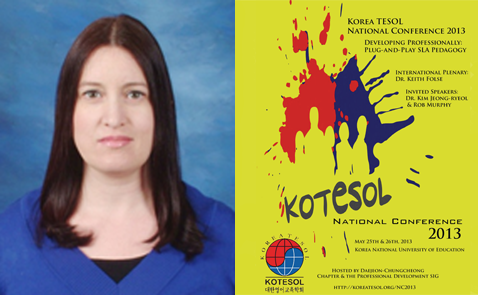
Sarah Harrison
Language Learning Beliefs: A comparative study of Korean university students and native English teachers
Abstract
A myriad of factors affect learners’ and teachers’ beliefs; consequently, everyone has their own “mini-theory” of foreign language learning (Hosenfeld, 1978). Interest in possible mismatches between learners’ and instructors’ beliefs about language learning can be traced back to Horwitz’s Beliefs about Language Learning Inventory (BALLI) (1983), revealing students and teachers hold wide-ranging and sometimes disparate views.
Learners’ success, or lack thereof, may be directly influenced by their beliefs (Kuntz, 1996, cited in Bernat and Gvozdenko, 2005), and an awareness of the assumptions that learners bring to the classroom can help teachers better understand and meet their students’ expectations by providing more thoughtful and effective guidance to students, particularly with respect to future syllabus design and teaching techniques.
This study investigated and compared Korean undergraduate students’ beliefs about language learning with those of foreign instructors’ using a survey instrument adapted in part from Horwitz’s BALLI (1983), and assessed how these beliefs compare to current theories and research in SLA.
The results, indicating areas of agreement and mismatch between university instructors and students in the Korean context, will be disseminated and their implications for classroom practice will be discussed.
Bio-sketch
Sarah Harrison has been working in the field of ELT for the past 12 years; 4 years in Canada as head instructor and TESL practicum supervisor of an adult language institute, and 8 years as both a teacher and teacher trainer in Korea. She is also a certified IELTS speaking and writing examiner with the British Council. Sarah holds a BA in Communication Studies from Wilfrid Laurier University and a TESL certificate from Conestoga College. She is an MA TEFL/TESL candidate at the University of Birmingham, having recently submitted her Masters dissertation on the organisation of the Korean L2 mental lexicon. Her research interests include SLA, classroom discourse analysis, testing, and word association. She is presently an assistant professor at Dongnam Health College.


